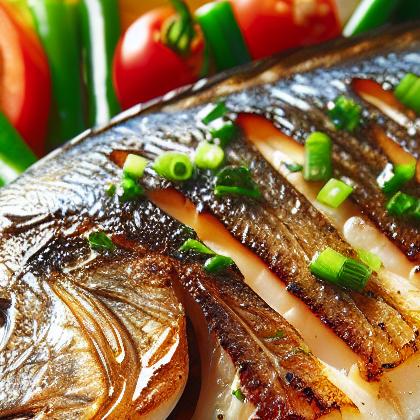Escalar

Pterophyllum is a small genus of freshwater fish from the family Cichlidae known to most aquarists as "angelfish". All Pterophyllum species originate from the Amazon Basin, Orinoco Basin and various rivers in the Guiana Shield in tropical South America. The three species of Pterophyllum are unusually shaped for cichlids being greatly laterally compressed, with round bodies and elongated triangular dorsal and anal fins. This body shape allows them to hide among roots and plants, often on a vertical surface. Naturally occurring angelfish are frequently striped longitudinally, colouration which provides additional camouflage. Angelfish are ambush predators and prey on small fish and macroinvertebrates. All Pterophyllum species form monogamous pairs. Eggs are generally laid on a submerged log or a flattened leaf. As is the case for other cichlids, brood care is highly developed.
Escalar Properties:
| Food Property | Type | Description |
|---|---|---|
| Flavor Profile | Umami | Escalar is known for its rich and savory umami flavor, which comes from the high levels of amino acids present in the fish. |
| Texture | Firmness | Escalar has a firm texture, making it suitable for grilling or pan-searing without falling apart. |
| Nutritional Value | Macronutrients | Escalar is a good source of protein, healthy fats, and vitamins such as vitamin D and B12. |
| Micronutrients | Escalar contains essential minerals like selenium, magnesium, and phosphorus. | |
| Color | Natural Pigments | Escalar typically has a pinkish hue due to the presence of myoglobin, a protein that stores oxygen in muscle tissues. |
| Aroma | Volatile Compounds | Escalar has a mild, fresh aroma that is reminiscent of the ocean. |
| Chemical Composition | Acidity/Alkalinity (pH) | Escalar has a neutral pH level, which contributes to its mild flavor profile. |
| Cooking Behavior | Heat Conductivity | Escalar cooks quickly due to its high heat conductivity, making it a convenient option for busy kitchens. |
Food Pairing App - Version 1.2.0
